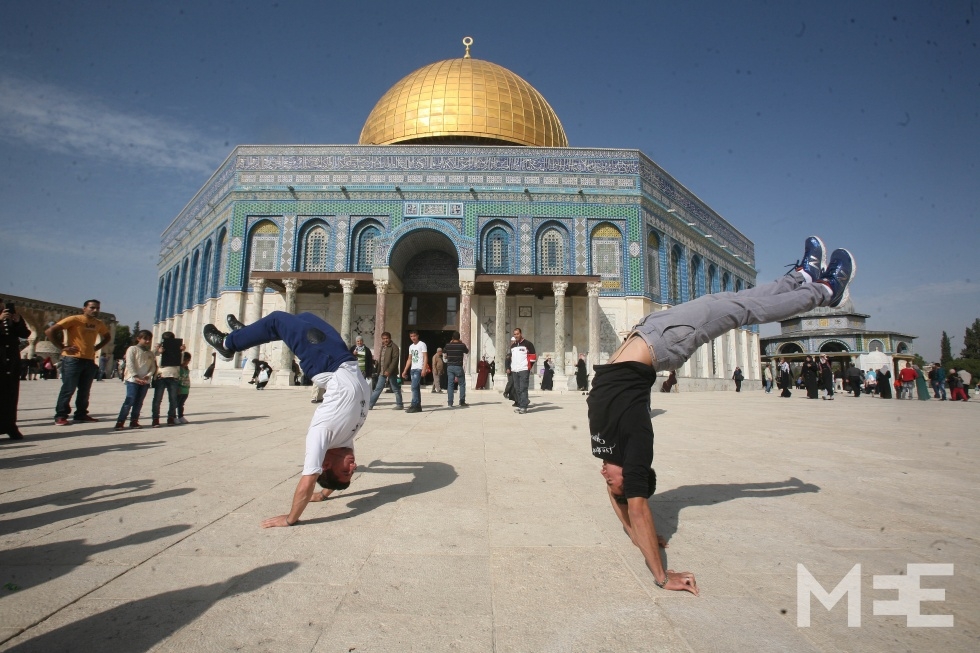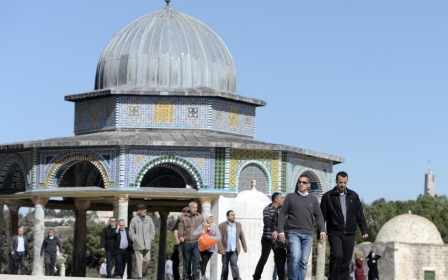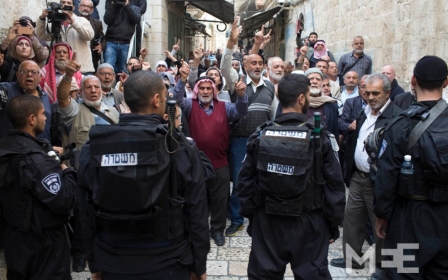Israel drops age limits for Aqsa access

Israeli authorities have dropped restrictions on access to the Al-Aqsa Mosque in East Jerusalem, allowing worshippers of all ages into the holy city.
Israeli police said Thursday that there will be no age restrictions on Muslim worshipers for Friday prayers at the Al-Aqsa Mosque.
Held sacred by both Jews and Muslims, access for Muslims to al-Aqsa has regularly been limited to women and men over the age of 40 or 50, particularly during times of political tensions while tourists and Jews have been able to enter the compound on weekdays, escorted by police and prohibited from praying or performing religious ceremonies.
The decision comes after a meeting in Amman between Israeli Prime Minister Benjamin Netanyahu, Jordan’s King Abdullah II and US Secretary of State John Kerry.
Shortly after the meeting on Thursday, Kerry told reporters that "real steps" had been negotiated to help end mounting violence in Israel and the occupied West Bank, but he did not specify the exact measures that would be taken.
"We are not going to lay out each practical step; it is more important they be done in a quiet and effective way," Kerry said. “This will be done in a quiet and effective way but [the steps] will be noticeable and I am convinced that they will be effective."
Netanyahu also said late Thursday that Israel was committed to preserving the current situation at holy sites in East Jerusalem, according to a statement by the Jordanian royal court.
Earlier this month, Jordan – which is responsible for Jerusalem's holy sites in line with a 1994 peace treaty with Israel – had recently recalled its ambassador in Tel Aviv to protest Israeli "violations" in East Jerusalem.
Tensions have run high in East Jerusalem since late last month, when Israel closed the Al-Aqsa Mosque compound for several hours after a right-wing Israeli activist was injured in a West Jerusalem drive-by shooting.
Unrest mounted further when Israeli forces killed a young Palestinian man suspected of shooting the activist in a raid on his East Jerusalem home.
Further aggravating the situation, a number of Israeli parliamentarians have forced their way into the mosque complex in recent days and weeks, drawing the ire of Muslim worshippers and official condemnation from Arab and Muslim countries.
For Muslims, Al-Aqsa represents the world's third holiest site. It is the holiest site for Jews who refer to the area as Temple Mount and believe it was the site of two Jewish temples in ancient times.
Israel occupied East Jerusalem during the 1967 Middle East War. It later annexed the holy city in 1980, claiming it as the capital of the self-proclaimed Jewish state – a move never recognised by the international community.
In September 2000, a visit to Al-Aqsa by controversial Israeli politician Ariel Sharon triggered what later became known as the "Second Intifada," a popular uprising against Israel's decades-long occupation in which thousands of Palestinians were killed.
New MEE newsletter: Jerusalem Dispatch
Sign up to get the latest insights and analysis on Israel-Palestine, alongside Turkey Unpacked and other MEE newsletters
Middle East Eye delivers independent and unrivalled coverage and analysis of the Middle East, North Africa and beyond. To learn more about republishing this content and the associated fees, please fill out this form. More about MEE can be found here.




